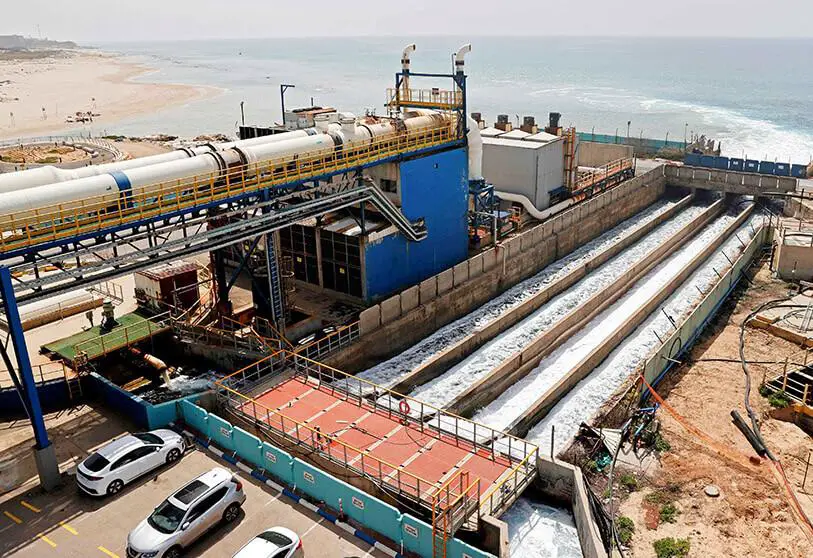Ayman Soliman, CEO of the Egyptian sovereign wealth fund, has revealed Egypt’s plans to construct 21 seawater desalination plants at an investment of $3 billion. He revealed this at the Reuters Next conference in New York.
He said, “Egypt’s first phase of large-scale seawater desalination will cost $3 billion. This will include 21 facilities with a daily capacity of 3.3 million cubic meters. More than 200 organizations from about 35 different nations, according to Soliman, have shown interest in participating in the first stage of Egypt’s saltwater desalination project.
He also mentioned that during the 27th United Nations Conference on Climate Change (COP27), which was held in Sharm el-Sheikh last November, the Egyptian government was successful in turning nine of the fifteen MoUs pertaining to green hydrogen projects into framework agreements. Indicating that the start of production of this clean fuel would be in 2025–2026.
The Egyptian Sovereign Wealth Fund was founded in 2018 to entice private participation through joint ventures and co-investments in state-owned assets. The current emphasis is on enlisting private consortiums. To build out brownfield infrastructure and private equity to build out state-owned businesses before they go public.
Leia também: ReNew planeja instalar planta de hidrogênio verde no Egito
The proposed seawater desalination plants are designed to help reduce water scarcity
Furthermore, freshwater resources in Egypt are running out, especially as droughts are happening more frequently. The most populous Arab nation already has more than 70 modest water desalination plants that produce 830,000 m3 of freshwater daily.
According to Soliman, the government’s economic constitution moving forward will be a state ownership policy. That identifies which areas of the economy are available to private participation. Additionally, this policy will act as a platform to attract private investment despite the rising cost of capital.
He said, “We as a fund are laser-focused on identifying those leaders who can scale up in any industry. Including infrastructure, banking, tourism, agricultural, and financial services.”
Egypt has often delayed its privatization plans. And the government has blamed the delays on economic shocks like the COVID-19 outbreak and the war in Ukraine. According to commentators, supporters of continuous state control have also opposed the idea.
